The pickups that you use in your guitar play a fundamental role in your tone. In fact I would argue that the type of guitar pickups that you use – as well as the design and build of those pickups – both contribute more to your tone than many of the other elements of your rig with which you might be concerned.
So if you are looking to improve your tone, and you play a guitar with humbuckers – then in this article I am going to cover some of the best humbucker pickups for killer blues tones. I will look at:
The world of guitar pickups is not easy to navigate. In recent years, manufacturers have made huge developments in pickup production. This has increased the range of pickups out there and also made them both more readily available and more affordable.
And this has resulted in a wide range of choice. The benefits of this are significant. You now have a lot of different options available. And you can tailor your search accordingly to find the best humbucker pickups for your setup.
However this choice can also be somewhat overwhelming. There are a variety of ways that manufacturers alter their pickups. And this has resulted in there being many variations of humbucker pickups that are all quite similar to one another. As a result, if you don’t know exactly what you are looking for, it is easy to end up with a set of pickups that are poorly suited for your setup.
If you are new to the world of guitar pickups, or if you would like to know more about how they function, then I would recommend reading my article: ‘Which Types Of Guitar Pickups Are Right For You?’ In that article I cover pickups more broadly.
Specifically, I run through some of the main elements that pickup manufacturers alter to change the sound of their pickups. This includes the material of the magnets used in the pickups, whether the pickups have been over or underwound, and whether they have been wound by a machine, or by hand.
If these concepts are new to you, I would head over there first. This will help you to better understand some of the terms that you are likely to encounter when looking for a new set of humbucker pickups.
And after that, you will then be better placed to refine your search by looking at specific sets of pickups. It is this latter point on which I will be focusing throughout the rest of this article.
What are humbucker pickups?
Before we look at specific humberbucker pickup sets, I think it is useful to cover a few initial points. Significantly, I think it is worth noting exactly what humbucker pickups are, and why manufacturers use certain terms when talking about them.
Humbucker pickups were initially born out of a desire to combat the loud humming noise that single coil pickups produce at higher volumes.
During the 1950s there was a large surge in the popularity of rock n’ roll, electric blues and other forms of guitar driven music. This led to bands playing in larger venues and at higher volumes. And as the volume at which guitarists were playing increased, so did the hum from their single coil pickups.
The major breakthrough in counteracting this hum came in 1955. Seth Lover – an amp designer working at Gibson – discovered a way to connect two single coil pickups. He did this by wiring two coils together, each with opposite magnetic polarities.
This cancelled or ‘bucked’ the hum that single coil pickups produced. And so the ‘humbucker’ pickup was created. It is for this reason that we call them humbucker pickups, and not simply ‘double coil pickups’.
As a second point – if you have spent any time looking at humbucker pickups, then you may have encountered the term P.A.F. This is often used as a selling point for pickups, and as you will see below, there are a lot of pickup sets that reference this term.
This is because shortly after Seth Lover first produced the original humbucker pickups, he applied for a patent. It took 4 years for the patent to be accepted. And during this time Gibson attached a ‘Patent Applied For’ sticker on the underside of all of their pickups.
These P.A.F pickups are some of the most celebrated pickups ever created. Original P.A.F humbuckers have become popular collectors items.
As a result, they can sell for prices as high as $19,000/£14,000 on sites like Reverb, depending on their condition. And as you will see below, a number of different pickup manufacturers have since produced ‘PAF’ style humbuckers modelled on these original pickups.
Starting your search
Beyond referring to the P.A.F. term when advertising their pickups, manufacturers don’t typically focus on the more technical elements of pickup design. Instead, they usually organise pickups into groups. These are often based on the output of the pickup (how powerful it is) and the type of tone it produces.
This is predominantly to make it easy for the vast majority of guitarists; many of whom don’t want to get into deep technical detail whilst trying to buy new gear.
However it is also because the output and tonal characteristics of different pickups are determined by a multitude of complex factors. As such, it is not just as simple as looking at the type of magnet in the pickup, or at whether the pickup is underwound or overwound.
Each of these factors is important. And they will give you a broad indication of the characteristics of the pickup. But it is how these factors combine together which ultimately affects how a pickup sounds.
As such, below I have created categories of different humbucker pickups, which I hope will help to give focus to your search. These categories are similar to those offered by many of the different pickup manufacturers out there.
Here though I have added in a bit more detail. I hope this helps you to differentiate between the multitude of different humbucker pickups available. I have added in some of the best humbucker pickups for:
- Low gain blues tones
- British blues tones
- Out of phase blues tones
- Texas blues tones
- Heavy blues tones
In the interest of full disclosure, these categories are imperfect. This is largely because there is a lot of crossover between different types of pickups and their characteristics. For example, there are humbucker pickups listed below which will help you to create fiery British blues tones.
But some of these pickups will also be well suited for heavier, more modern tones. Likewise, there are a whole range of balanced pickup sets out there. And these have the potential to span across multiple categories.
As such, I would recommend using this list as a guide. I have tried to categorise the pickups based on their defining characteristics. In other words, the humbuckers listed under the British blues section are those which I feel are most suited for creating those kinds of tones.
It is not to say that those are the only kinds of tone you can create with those pickups. Nor is it to say that you can’t create Texas style blues tones if you have a set of British style humbuckers.
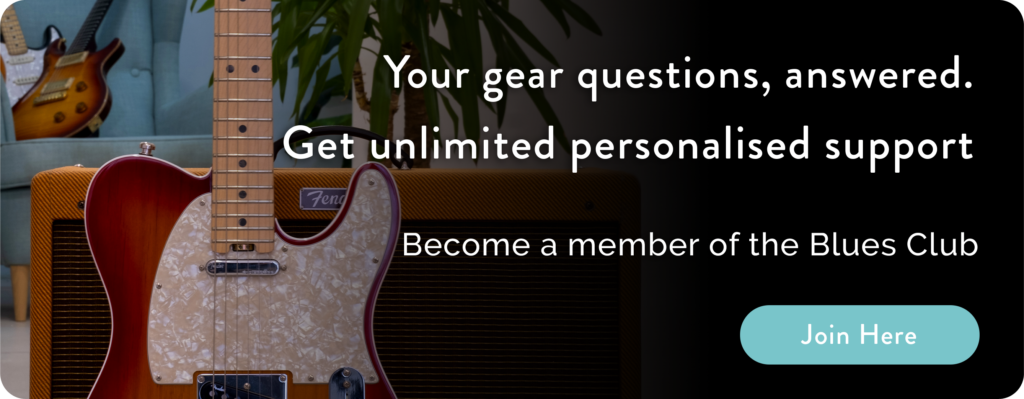
A note on price
The penultimate point to consider before we look at specific humbucker pickup sets, is that of price. Normally when recommending guitar gear, I try to do so with a range of different budgets in mind.
You will see however that the majority of humbucker pickups I have recommended below are either boutique or in a higher price range. And I have done this intentionally.
There are a number of reasons for this, which are as follows:
Firstly, changing your pickups is not as easy as buying a new guitar pedal or even a new amp. You need to alter the electronics on your guitar, which most players will have to outsource to a guitar tech.
This already adds on an extra layer of cost. It also makes it more troublesome (and potentially expensive) to make changes if you are dissatisfied with your new set of pickups.
If you take a gamble on a cheap guitar pedal or amp, and you find that you don’t like it, you can simply return it, or sell it on. This isn’t true of guitar pickups. You can of course change them and sell them on.
But first you have to go through the hassle of replacing them and rewiring the electronics etc. As such, in my opinion it is worth erring on the side of caution and quality when you are looking to upgrade your humbucker pickups.
Additionally, when you buy a new set of pickups, you are essentially looking to upgrade your current guitar. And again, in my opinion this has an impact on the type of pickups you should be considering. Let me explain this in a bit more detail by looking at a Les Paul guitar across three common price brackets.
If you have a Gibson Les Paul Standard or a Les Paul of similar quality, it will already have high quality pickups. As such, it doesn’t make sense for you to then go and buy an entry level set of pickups. Instead of upgrading your guitar, you might actually be moving further away from the tone you have in mind.
Likewise, if you have a high end Epiphone guitar or a Gibson Les Paul Studio or Tribute, the pickups that come with the guitar will also be high quality. They won’t be the same as those in a Gibson Les Paul Standard.
But in this situation, opting for a more expensive set of humbucker pickups is a great choice. You can really improve the tone of your guitar and upgrade it to be of a similar (or perhaps better specification) than a Gibson Les Paul Standard.
And significantly, you can do this at a lower overall cost than buying a more expensive Gibson model.
The only situation in which I would not recommend opting for high end humbucker pickups, is if you are playing an entry level Epiphone guitar or similar. As noted above, it doesn’t really make sense to play a high end guitar with entry level pickups.
And the opposite is true here. Firstly, there is something a little odd about the pickups in your guitar costing more than the guitar itself. More importantly though, the potential of those pickups will be somewhat stifled by the quality of the guitar.
As such, if you are in that situation – I would personally recommend focusing on other areas of your rig (like your amp and pedals) – or on spending a little bit more time saving to buy a more expensive Epiphone or Gibson, or a guitar of similar quality.
My final argument in favour of looking at higher end humbucker pickups is two-fold. Firstly it is that generally speaking, the difference in price between entry level and boutique pickups is not that great.
In fact it is much less than the disparity in price you are likely to encounter when looking at guitars, amps and pedals. Secondly, even high end boutique pickups are not as pricey as you might expect. In fact, most boutique manufacturers offer pickup sets for around the same price as a single boutique guitar pedal.
The importance of context
The final point to mention (I promise!) before we look at specific pickup sets, is that the specific guitar you use will make a difference to the tone of these humbucker pickup sets. In my previous articles on pickups, I looked at the best pickups for specific guitars, as follows:
In both of those articles, the focus was on finding the best pickups for a specific type of guitar. Here though, the subject is slightly broader. After all, there are a wide range of guitars with humbucker pickups. In a blues and blues rock context, just some of the most popular of these are as follows:
- Les Pauls (of various models)
- SG
- Flying V
- ES-335
- ES-339
These models are available across a broad range of prices. And although they are best associated with Gibson and Epiphone, a variety of brands produce guitars modelled on these designs.
Regardless of whether you are playing a Gibson, an Epiphone or something else entirely – it is worth noting that these guitars are all different. And this has an impact on how their pickups sound and respond. As such, if you take the same set of humbucker pickups and put them into both a Les Paul and an ES-335, they will sound quite different. And the same is true if you put them into a different type of guitar with humbucker pickups – like a PRS for example.
So keep that in mind as you are looking through the different humbucker pickups included here. It is important to consider not just the inherent tonal qualities of the different pickup sets, but also of your guitar.
Let’s say for example that you want to find a set of humbucker pickups to sound like Billy Gibbons. It makes sense to put those pickups into a Les Paul. Billy Gibbons crafted all of his early tones with a Les Paul. And it is the combination of your guitar and pickups – as well as your amp and pedals – that will give you the best chance of creating any given tone for which you are searching.
This is just one example. But hopefully it illustrates the point. As you start to look at different pickup sets, think about how they might combine with the other elements of your setup.
So with that final caveat out of the way, let’s get into it! Here are some of the best humbucker pickups out there for killer blues tones:
Low gain blues tones
When you think of beautiful clean blues tones, it is typically a Fender Stratocaster that springs to mind. Guitars like the Fender Strat – which are equipped with single coil pickups -have a lower output. As such, they are often favoured by players who want clean tones.
However the benefit of opting for a guitar with humbuckers when you predominantly play with a clean tone, is warmth. This is not really true of guitars with single coil pickups. The ‘classic’ clean Strat sound is not warm; it is bright and twangy. And the same is true of the clean tones you get with a Fender Telecaster.
When you play with a humbucker equipped guitar though, you have the opportunity to create a range of beautiful and warm blues tones. Just look at the tones of guitarists like Peter Green and B.B. King.
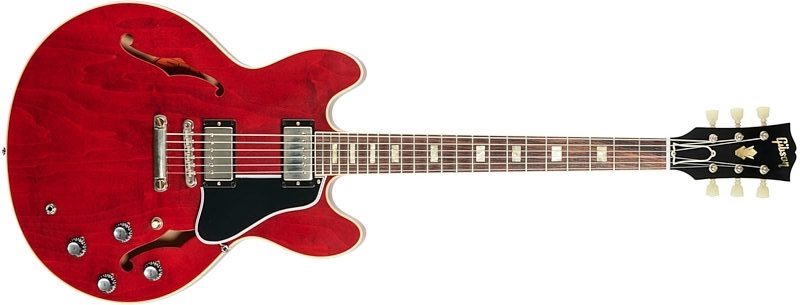
The pickups listed in this first category are vintage style humbucker pickups. And because the earliest humbuckers manufactured by Gibson were P.A.F. humbuckers, many of these humbuckers are categorised as such.
If you are looking for a warm and mellow blues tone that will help to recreate the tones of the players mentioned above, one of the following sets could make a great addition to your rig:
- Gibson Burstbucker ‘Type 1’ Pickups
- Bare Knuckle Stormy Monday Humbucker Pickups
- Lindy Fralin Pure P.A.F. Pickups
- Lollar Pickups Imperial Humbuckers
- Seymour Duncan Seth Lover Humbuckers
- Creamery Pickups – ’57 Humbuckers
- Radioshop Pickups – ‘The Radioshop PAF’
As you can see – the majority of these humbucker pickups are modelled on the P.A.F. pickups from the mid and late 1950s. These are the weakest pickups of those included in this article. And this makes them perfect for lower gain blues tones.
That is not to say you can’t also use them to play with an overdriven tone. It is just to say that they are better suited if you prefer to play with a clean or slightly broken up tone, as opposed to one that is very heavily saturated.
British blues tones
In the early 1960s, Gibson found themselves struggling to sell their Les Paul Standard models. They had marketed these guitars towards an older and more jazz-oriented audience, and a lot of younger players felt that they were old fashioned. In fact, Gibson stopped production of the guitar for a period of time. And instead they turned their attention to the production of the SG.
This all changed in the mid 1960s. Keith Richards started playing a Les Paul, and within a number of years, the Les Paul had become the guitar of choice amongst British blues and blues rock guitarists.
This included players like Eric Clapton, Peter Green, Jimmy Page, Jeff Beck and Paul Kossoff. And whilst Eric Clapton and Jeff Beck both went on to favour the Fender Strat later in their career, iconic British blues tones are still associated with the Gibson Les Paul.
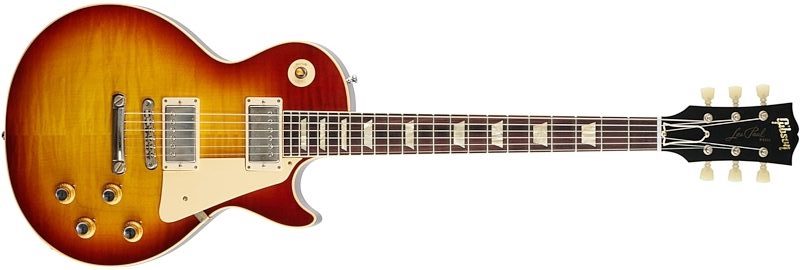
In fact for many, the fiery guitar tones that Clapton captured on John Mayall’s Blues Breakers With Eric Clapton represent the pinnacle of electric guitar tone. And there are players who feel as passionately about the tone that Jimmy Page and Paul Kossoff created. So it is little surprise that pickup manufacturers have designed pickups to help you recreate the tones of these players. Some of the most notable of these – in addition to some ‘standard’ British blues voiced humbuckers – are as follows:
- Wizz Pickups – ‘Beano Bluesbreakers‘
- Gibson Burstbucker Pro Pickups
- Ox4 Pickups – ‘Beano’ Humbuckers
- Bare Knuckle ‘Black Dog’ Pickups
- Radioshop Pickups – ‘The Radioshop PAF Plus’
- Wizz Pickups – ‘All Right Now’ Humbuckers
- Seymour Duncan – ‘Whole Lotta Love’ Humbuckers
- Creamery Pickups – ’59 Pickups
It is worth noting, that the guitarists that created what we now refer to as ‘British blues tones’, did so using Gibson guitars that were equipped with P.A.F. humbuckers.
At first then, it might seem slightly odd that this category of pickups even exists. After all, if Eric Clapton, Jimmy Page and Paul Kossoff all used P.A.F. pickups, then you might understandably be wondering if it makes more sense to opt for one of the P.A.F. style humbucker sets listed above.
In short, any of the ‘low gain’ pickups listed above would help you to recreate classic British blues tones. The key difference with these British voiced pickup sets, is output. Guitarists like Eric Clapton, Jimmy Page and Paul Kossoff drove their amps hard. And it was this which helped them to dial in their overdriven tones.
A huge part of their sound came from cranking their amps and playing at very high volumes. For most guitarists, this approach is not practical. If you are playing at home, and have family and neighbours to consider, you need to be mindful of volume. And so if you equip your guitar with a weak set of pickups, you might struggle to dial in a more overdriven British sound.
As such, all of the humbuckers listed above have a higher output and are a little more aggressive. This makes them a great choice if you want to recreate fiery British blues tones without cranking a Marshall stack!
Out of phase blues tones
As noted above, many regard the tone that Eric Clapton created with The Blues Breakers as the pinnacle of British blues tones. Yet for a lot of British blues fans, it was Peter Green’s tone that truly captured their imagination. Amongst these was no other than B.B. King, who once described Peter Green’s guitar tone as the ‘sweetest’ he ever heard.
And whilst a large part of this tone came from Green’s fingers, it is worth noting that he also had a unique set up that helped him achieve his beautiful tones.
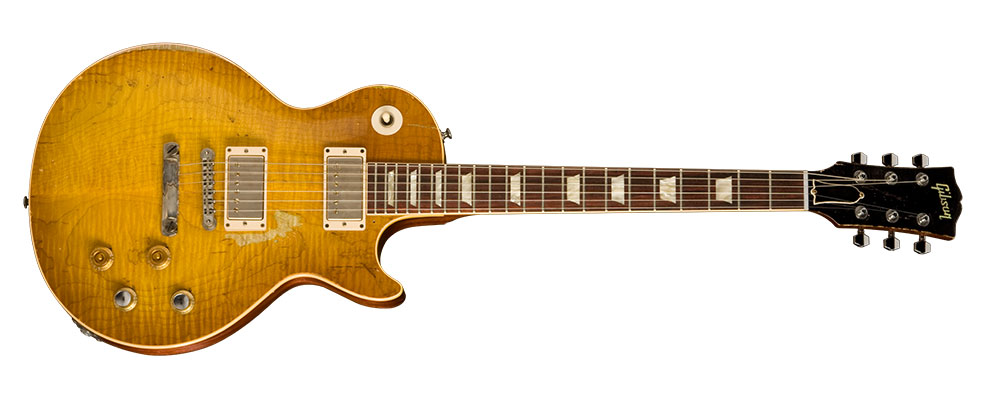
Significantly, he played a Gibson Les Paul with pickups that were magnetically out of phase. This was first properly discovered in the early 1980s, when Gary Moore – who owned the guitar at that point – took it to his friend and the founder of Hamer guitars, Jol Dantzig.
Both Moore and Dantzig assumed that the secret to Peter Green’s tone was out of phase pickups. When pickups are wired out of phase, they usually produce a sound that is typically a bit thin and hollow. This they thought, accounted for the difference in tone in Green’s Les Paul.
They agreed to deconstruct the instrument, expecting to find that Green had re-wired his pickups to achieve his signature sound. But when they took it apart, they found that this wasn’t the case. The guitar was essentially an off the shelf model. Dantzig remained puzzled, until he checked the polarity of the pickups. In his own words:
I used a compass to measure the pickups’ magnetic polarity. I discovered that one magnet was oriented north-to-south while the other was oriented south-to-north. The pickups were magnetically out of phase—this was the secret we’d all been searching for!
Dantzig suspected that the guitar had been set up incorrectly at the Gibson factory. This was an idea supported by Joe Bonamassa, who acquired a 1959 Gibson just over 10 years ago which had the same feature.
Peter Green’s guitar tone is so celebrated that there are a number of pickup manufacturers that have created out of phase pickups to help you recreate Green’s soaring blues tones. Some of the most notable of these are as follows:
- Bare Knuckle PG Blues Pickups
- Ox4 Pickups – ‘Peter Green Rollin’ Man’ Humbuckers
- Throbak PG-102 PAF Humbuckers
- Seymour Duncan Custom Shop ‘Greenie’ Pickups
- Wizz Pickups – ‘Shadower Jumper’ Humbuckers
If you are a big Peter Green fan, then one of these sets would make a brilliant choice. They will give you access to a totally different set of sounds on your guitar when you have both pickups engaged. And this will help you to recreate that distinctive out of phase sound you can hear on early Fleetwood Mac records, and in some of Gary Moore’s recordings too.
Texas blues tones
The ‘Lonestar State’ has produced some of the most notable blues guitarists of all time. Stevie Ray Vaughan, Albert Collins, Jimmie Vaughan and Gary Clark Jr. are just some of the brilliant guitar players to have been born in Texas. When it comes to humbucker driven Texas blues tones though, there are really two players that spring to mind – Freddie King and Billy Gibbons.
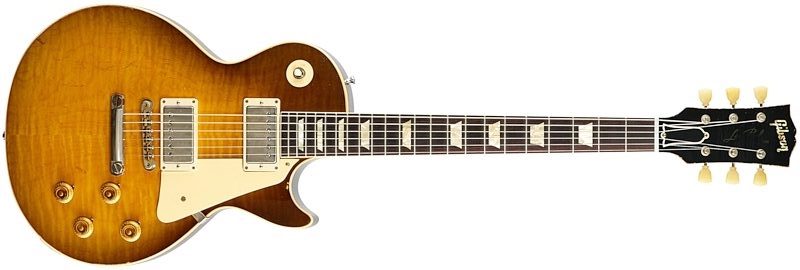
Freddie King – ‘The Texas Cannonball’ – crafted the fiery blues tones that went on to inspire Eric Clapton’s early playing. And Billy Gibbons created some of the most iconic blues rock tones of all time with his ‘Miss Pearly Gates’ Les Paul.
In fact I would argue that Gibbons’ tone has become almost synonymous with humbucker driven Texas blues tones. And as a result, a wide range of pickup companies have created humbucker pickups that are designed to help you sound like Billy Gibbons.
The most notable of these are Cream T Pickups. Billy Gibbons actually worked in conjunction with Cream T to create a range of different Texas style humbucker pickups. Some of the most notable of these are as follows:
- ‘Original Banger’ Humbucker Pickups
- ‘BFG Bangers’ Humbucker Pickups
- Whisker Series ‘Eliminator’ Humbuckers
- Whisker Series ‘After Burner’ Humbuckers
If you are a big Billy Gibbons fan and want to recreate his killer blues tones, one of these pickup sets would make a great choice. Each of them has slightly different characteristics depending on the specific Gibbons tones that they aim to recreate. So if you want to go for one of the Cream T pickup sets listed above, just make sure that you choose those which match what you are looking for with regards to output.
Beyond Cream T Pickups, there are some further options worth considering. Of these, the Seymour Duncan Pearly Gates Humbuckers, Rio Grande ‘Texas Barbeque’ Humbuckers or Rio Grande Buffalo Texas Humbuckers would be my top choices.
In my opinion, Gibbons’ early guitar tones share a lot of similarities with those of some of the British players listed above. And in fact, the core of Gibbons’ setup during that time was similar to that of guitarists like Eric Clapton and Jimmy Page. Gibbons played a Gibson Les Pauls and combined that with a large Marshall amplifier.
So if you typically favour a more overdriven guitar tone, and you like both British and Texas blues tones, I think there is quite a lot of crossover between the pickups in both categories
Heavy blues tones
Compared with guitars like the Fender Stratocaster and Telecaster, humbucker equipped guitars are much more powerful. It is for this reason that so many blues rock and rock guitarists favour Gibson Les Pauls and SGs. Just think of guitarists like Angus Young, Slash and Gary Moore, amongst countless others.
They use(d) their humbucker equipped guitars to create more overdriven and biting tones. And they combine(d) them with more powerful amps – and in some cases pedals – to create higher gain and more aggressive tones.
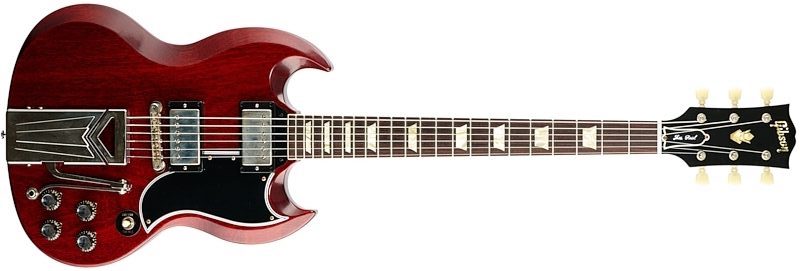
If you want to create similarly heavy tones, and you are looking for humbuckers with a bit more power and aggression, then I would recommend one of the following sets of:
- Creamery Pickups – ’87 Humbuckers
- Lindy Fralin Pickups – Modern P.A.F. Humbuckers
- Seymour Duncan Slash Signature Humbuckers
- Bare Knuckle ‘Emerald’ Humbuckers
- Dimarzio PAF 36th Anniversary Humbuckers
- Gibson Burstbucker ‘Type 3’ Humbuckers
Any of the above pickup sets will help you to dial in a range of heavy blues and blues rock tones. They will also help you push into ‘modern’ tone territory as well. So if you spend most of your time on the higher gain side of the tonal spectrum, one of these pickup sets could make a great choice.
Narrowing your search
At this stage, you might understandably be feeling somewhat overwhelmed. After all, there are still a lot of options from which to choose, even in this curated list.
If that is the case, then I would recommend going through a process of elimination to help focus your search. All of the humbuckers pickups listed in this article have the potential to sound brilliant. And so you have to be very discerning about exactly what you want from a new set of pickups.
The key here is to take time to fully consider not only the type of tone that you want to create, but also how your pickups fit more broadly within the context of your rig. This will help you to avoid the two key mistakes that many guitarists make when looking at new pickups. These are as follows:
Firstly, when buying new pickups, many guitarists don’t fully consider the range of tones they might want to create. Instead they end up focusing on achieving a very specific sound. And they do so without considering the broader range of tones they might also want to produce.
In this way, they can end up feeling limited by their choice of pickups. They may feel ‘stuck’ having to play with a particular kind of tone, when in actual fact they are looking for a broader range of blues tones.
So before you go for any of the pickup sets listed above, take time to fully consider the kind of tones you want to create. And the good news here, is that if you do want to create a very specific tone, you do not need to rely solely on your pickups. This brings me to my second point:
When choosing new pickups, a lot of guitarists fail to take a holistic view of their setup. They often forget about or underestimate the impact that their amp, pedals and guitar have on their tone. And this either leads them to place too much emphasis on their new pickups, or to overlook potential gains to their tone they can achieve without changing their pickups.
The pickups that you use have a profound impact on your tone. Yet so does your amp, your pedals, your guitar, the speakers in your amp, and so on. The tone that you produce is a result of all of these different factors. And it is important to recognise this point for two reasons:
The first is to avoid disappointment. If you fit your Les Paul with a set of Peter Green style pickups, and yet the rest of your rig is totally different to Greens’, the likelihood that you will recreate his specific tone is relatively slim.
I don’t say this to put you off. In fact quite the opposite! I want you to make the right buying decisions and to avoid frustration and disappointment. And one of the best ways to achieve this, is to constantly think about your personal playing context, and where a set of new pickups fits within that context.
The second, is to capitalise on quick wins. You don’t need to opt for a particular type of pickup to create a specific tone. You can also use your amp and pedals.
Let’s take a player like Gary Moore for example. Moore has a high gain blues tone. So if you want to recreate his tone, all of the time, then it makes sense to opt for a powerful set of humbucker pickups.
However if you only want to create his tone on occasion, opting for those kind of pickups might not be such a good idea. And this is where your amp and pedals can make a big difference. You could increase the volume or drive on your amp or use a range of overdrive or ‘amp in a box style pedals‘. Doing this would help you to create a similar fiery tone, without having to make such dramatic changes to your guitar.

Closing thoughts
Understanding these ideas is empowering. It immediately gives you focus. And this makes it easier and more enjoyable to decide what will work for you.
Of course, deciding on the final set of pickups won’t be an easy process. And as a closing point, it is worth noting that the suggestions listed throughout are by no means exhaustive. There are a huge variety of humbucker pickups out there. And many of these will help you to create killer blues tones. To compile them all in a single article would be impractical, and most likely impossible. After all, pickup manufacturers continue to improve upon their existing designs, as well as release new pickup sets.
As such, I would recommend treating the information outlined here as a guide. Use it to help focus your search. Look for the characteristics that are important to you. Use this, in combination with some of the brands and manufacturers I have included above, and it will ensure you choose the right humbucker pickups for your setup.
Good luck! And if there is anything at all I can help with, or if you have any questions, just pop them in the comments below or send me an email on aidan@happybluesman.com. I am always around and happy to help! 😁
References & Images
Guitar World, My Les Paul Forum, Wikipedia, Guitar Player, Ground Guitar, Wikipedia, Premier Guitar, Gibson Legacy, Forbes
Links
Many of the links embedded in this article are affiliate links. As such, if you buy one of the pieces of gear I recommend, or an item from the same store after clicking one of these links, I will earn a small commission. I never recommend pieces of gear that I wouldn’t use myself, and I include these affiliate links to ensure that I can keep this content free. If you have any questions, please feel free to reach out to me on aidan@happybluesman.com.

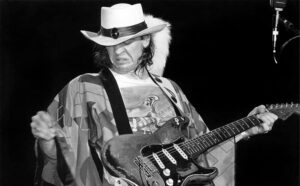
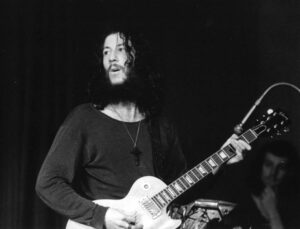
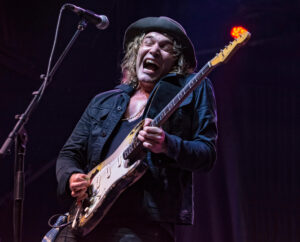
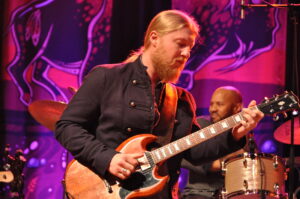
Responses
Aiden,
I have a strat and never play it. I have 5 SG’s from 1974-2021. Also have a PRS with humbuckers picked by Carlos Santana. I guess it’s humbuckers for me. Good article.
Haha it certainly sounds like that is the case Ken! 😁 Do you know which humbuckers are in your various SGs, and do you have any preference between them!?
Uh…UK homegrown P.A.F. copy from. Monty’s guitars?
Great suggestion, thank you Morgan. I also just saw that Monty has released an out of phase, Peter Green style set. I’ll add them both into the article above 😁 thanks again!
Why should one choose to use low output PAF humbuckers?
Can we not simply use more powerful pickups and just turn back the volume to reduce the output?
I really enjoy vintage edge of break up tones in a range of styles from John Lee Hooker’s hypnotic drive to Hound Dog Taylor’s filthy howl.
I play a Fender Mustang Special with hot Enforcer (reissue) coil splitting HBs and usually keep the vol rolled back 1/4 to 1/3rd. I’m really happy with its versatility so I’m left wondering what might be the advantage of owning a dedicated low output PAF HB equipped instrument?
So far I’ve been able to resist temptation!
Thank you very much for your thoughtful comment Pól comment, I really appreciate it.
In short – if you are happy with your tone and setup, then I don’t think you need to change anything! 😁
To answer your question though, from my perspective opting for any given type of pickups (within a certain range) has an impact on the way your rig functions and responds. And this alters how easily you can achieve certain tones, and which kinds of tones you are likely to use with greater frequency. To a lesser extent, it also has an impact on your playing style.
As you noted, you are using a more powerful set of pickups, and you are taming them with your volume control. That will have an impact on your tone and affect things like the sustain and top end of your sound. If you use a weaker set of pickups, you might achieve a similar volume with the controls on your guitar set at a higher level. But your sound will be different, and so will the way your guitar responds to your playing.
It is not to say that one is better than other – they are just different. Opting for one set of pickups over another will change the way the different elements of your setup work together, and as a result the kind of tone you achieve.
I hope that helps (and doesn’t overcomplicate matters!) but please do let me know if you have any more questions. You can reach me on aidan@happybluesman.com and I am always around and happy to help 😁
Thanks Aidan for responding so thoroughly. I hadn’t considered how the frequency response would change as the guitar volume knob is dialled back so that’s worthwhile to keep in mind. I guess to some extent I can mitigate some of this high end frequency loss by EQing with the amp or a pedal? My ear isn’t yet so practiced or refined that I dwell too much on the compromises.
The approach I’m exploring now is to simply lower the pickups further from the strings in order to tame output. I’m presuming this brings back some top end and no doubt affects the tone in other ways too. Perhaps the influence of pickup height and pole adjustments upon tone and output would make a good subject for a future article?
All those bucker’s are really nice but not cheap, I find the stock Wilkinson Double Coil Alnico 5 on my Vintage V100 are brilliant, I will be getting the wiring upgrade to a 50’s style, the one brand I would be interested eventually is the RadioShop PAF’S,
I into the classic players like Clapton, Page etc, all used the PAF’s, I just love the tone from a PAF, it really depends what tone your chasing,
Yeah you’re not wrong there Brian, these are definitely on the pricier side of the spectrum. However generally I do recommend more expensive pickups, just because I feel that spending a little more on your pickups can do a lot to improve the tone of your guitar.
Of course that is not to say that there aren’t other great options out there. And I’m really glad to hear you’re getting on well with the pickups you have in your Vintage! 😁